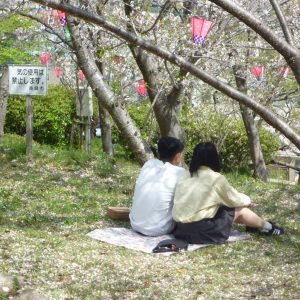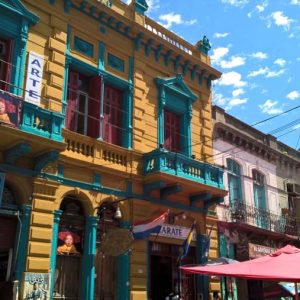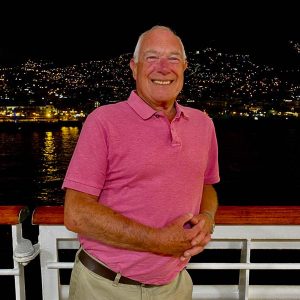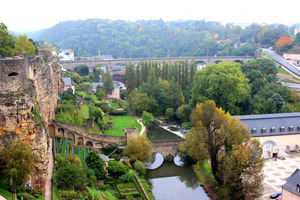 What does Luxembourg mean to you?
What does Luxembourg mean to you?
The home of the European Court of Justice? A tax haven for the wealthy? The home of a radio station that used to broadcast pop music when the BBC didn’t?
Well, it’s all of these but so much more.
Confusingly, Luxembourg is the name of the capital city as well as the country and, just 51 miles long and 35 miles wide, it is one of the smallest countries in the world. However, it packs in everything you would expect in a much larger country and more, it’s just more compact and therefore great to explore if you only have a few days.
Let’s start with the city.
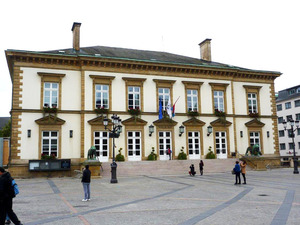 Dating back to 963 and built on a rocky precipice high above the convergence of two rivers, the old city’s main attraction is the official residence of Grand Duke Henri, Luxembourg’s reigning monarch. Its single guard is testament to the fact that this is one of Europe’s safest cities, ideal to explore on foot. The other main building is the Hotel de Ville (Town Hall) in the Place Guillaume II, re-modelled in 1838 and originally a monastery for Franciscan Monks. This area is also ideal for a bit of retail therapy with many shops offering good quality items at great prices. However ladies, be aware that many of the streets are cobbled so take suitable footwear.
Dating back to 963 and built on a rocky precipice high above the convergence of two rivers, the old city’s main attraction is the official residence of Grand Duke Henri, Luxembourg’s reigning monarch. Its single guard is testament to the fact that this is one of Europe’s safest cities, ideal to explore on foot. The other main building is the Hotel de Ville (Town Hall) in the Place Guillaume II, re-modelled in 1838 and originally a monastery for Franciscan Monks. This area is also ideal for a bit of retail therapy with many shops offering good quality items at great prices. However ladies, be aware that many of the streets are cobbled so take suitable footwear.
Luxembourg is also a major financial centre. The new part of the city has been built across the ravine in the Kirchberg area. Reminiscent of Canary Wharf in London, it is full of glass and concrete edifices dedicated to banks and the European Court of Justice. However, a quick tour is all that’s needed, there are better things to see elsewhere.
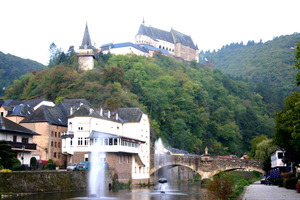 We drove out of the city and quickly found ourselves in open countryside with farms, sheep and cattle, as well as some picturesque villages. There is probably none better than Vianden, situated thirty miles to the north east of the capital and a few miles from the border with Germany. The country’s primary tourist centre, it is ideal for walking, cycling and camping tours. Surrounded by picturesque countryside, a pretty river flows through the centre of the village. It is dominated by the impressive castle, originally built between the 11th and 14th centuries which, since 1977, been the subject of extensive renovation. In summer there is a chair lift taking passengers up to the castle but we walked up the steep cobbled streets. We were rewarded with great views of the castle, inside and out, and of the surrounding countryside.
We drove out of the city and quickly found ourselves in open countryside with farms, sheep and cattle, as well as some picturesque villages. There is probably none better than Vianden, situated thirty miles to the north east of the capital and a few miles from the border with Germany. The country’s primary tourist centre, it is ideal for walking, cycling and camping tours. Surrounded by picturesque countryside, a pretty river flows through the centre of the village. It is dominated by the impressive castle, originally built between the 11th and 14th centuries which, since 1977, been the subject of extensive renovation. In summer there is a chair lift taking passengers up to the castle but we walked up the steep cobbled streets. We were rewarded with great views of the castle, inside and out, and of the surrounding countryside.
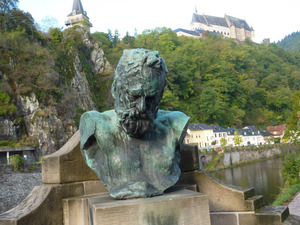 The French author Victor Hugo stayed regularly in Vianden between 1862 and 1871. He wrote about it extensively providing it with well-deserved publicity and his home is open to the public. However, the village’s other main claim to fame, and one that is still celebrated, is its central role in the provision of walnuts. Usually on the second Sunday of October the village is closed, all leave at the local hospital is cancelled and Vianden hosts an annual festival featuring numerous items made from the local product. These include cakes, confectionary, bread, sausages and a range of highly potent liquors, hence the cancellation of all leave at the hospital and a fleet of ambulances on standby at the edge of the village.
The French author Victor Hugo stayed regularly in Vianden between 1862 and 1871. He wrote about it extensively providing it with well-deserved publicity and his home is open to the public. However, the village’s other main claim to fame, and one that is still celebrated, is its central role in the provision of walnuts. Usually on the second Sunday of October the village is closed, all leave at the local hospital is cancelled and Vianden hosts an annual festival featuring numerous items made from the local product. These include cakes, confectionary, bread, sausages and a range of highly potent liquors, hence the cancellation of all leave at the hospital and a fleet of ambulances on standby at the edge of the village.
On the subject of alcohol, the Moselle river forms a 25-mile natural boundary between Luxembourg and Germany. The vineyards on its bank produce a range of white wines, primarily Riesling, and before leaving Vianden we had a Sunday lunchtime glass or two with the mayor, Marc Schaefer, in the town hall. Well, it’s that kind of place.
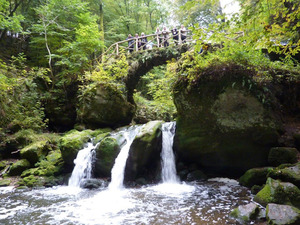 We later visited a local vineyard where they were in the process of making Cremant, a smooth ‘bubbly’ made by the ‘methode champenoise’. After a detailed explanation and tour round the bottling and storage areas we were treated to generous samples of the product. Good job we were on a coach trip.
We later visited a local vineyard where they were in the process of making Cremant, a smooth ‘bubbly’ made by the ‘methode champenoise’. After a detailed explanation and tour round the bottling and storage areas we were treated to generous samples of the product. Good job we were on a coach trip.
Just when you think you have seen it all, Luxembourg comes up with another surprise, an area known as ‘Little Switzerland’. Quite why it has this name never became clear, although it does have hilly outcrops, woodland areas criss-crossed with walking trails and a much-photographed miniature waterfall.
Luxembourg crams in so many different experiences you tend to forget you are in such a small country. The locals are friendly, food and drink is great and the variety of scenery amazing.
Now, where’s that bottle of Cremant I bought?
Silver Travel Advisor recommends Shearings Coach Holidays (UK & Europe)

